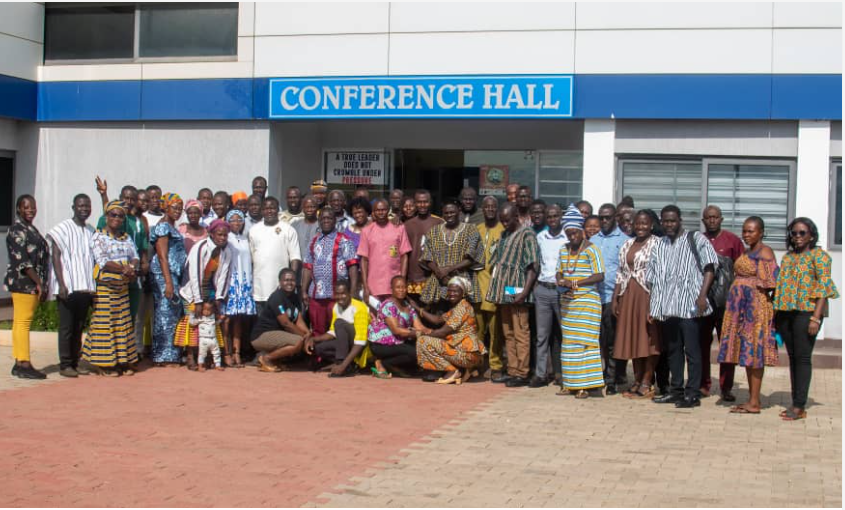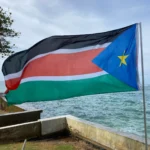The Widows and Orphans Movement (WOM), in strategic partnership with WaterAid Ghana, is spearheading a ground-breaking initiative to empower communities in the Upper East Region of Ghana to develop and harmonise bylaws that govern Water, Sanitation and Hygiene (WASH) services alongside adolescent sexual and reproductive health. This collaborative effort recognises that locally crafted regulations can bridge enforcement gaps, safeguard precious water resources, and foster sustainable hygiene practices tailored to the unique challenges of rural areas such as Kassena-Nankana, Builsa North, Builsa South, and Bongo Districts. By rooting solutions in community consensus, the project seeks not only to elevate public health standards but also to strengthen the legal framework that underpins them.
This initiative forms a critical component of the five-year Sexual Health and Reproductive Education (SHARE) project, funded by Global Affairs Canada and implemented by a consortium led by Right to Play with support from WaterAid Ghana, FAWE-Ghana, and FHI360. SHARE aims to advance gender equality and adolescent well-being by delivering age-appropriate sexual and reproductive health education, alongside interventions that address the environmental determinants of health. By integrating WASH improvements with sexual health programming, SHARE acknowledges the interdependence of clean water access, sanitation infrastructure, and the protection of young people—particularly girls—from preventable health risks and social vulnerabilities.
A consultative workshop held in Bolgatanga brought together traditional chiefs, assembly members, youth advocates, women’s groups, and opinion leaders to harmonise the proposed community bylaws with existing District Assembly regulations. The process involved meticulous review of local practices, identification of enforcement challenges, and alignment with national legal standards. Participants examined draft clauses on water point management, latrine maintenance, menstrual hygiene facilities in schools, and measures to prevent teenage pregnancy and child marriage, ensuring each provision resonated with the lived realities of their communities.

At the heart of the consultative meeting, WOM’s Executive Director, Ms Fati Abigail Abdulai, stressed the imperative of creating a cohesive legal environment. She explained that harmonised bylaws would close gaps “not necessarily covered in law” and would compel key stakeholders—especially parents—to assume responsibility for adolescents’ upbringing and well-being. Ms Abdulai further emphasised that the project will “go further to
support them to ensure these bylaws are gazetted to make them more binding,” thereby transforming community resolutions into enforceable regulations that carry the weight of statutory law. Ensuring the bylaws reflect inclusive decision-making, the initiative engaged representatives from every segment of the local population.
Traditional leaders lent their authority to ratify norms, youth delegates voiced the concerns of their peers, and local government officials provided technical guidance on alignment with district policies. This participatory approach not only bolsters community ownership but also fosters transparency, guaranteeing that bylaws on sanitation block maintenance, water source protection, and adolescent care are responsive to the needs of all, irrespective of gender or age.
The Upper East Regional Director of the Commission on Human Rights and Administrative Justice (CHRAJ), Mr Jaladeen Abdulai, reiterated the necessity of attaching clear sanctions to each bylaw clause. He noted that “any law that does not have a corresponding punishment is not an effective law,” advocating for proportional penalties to deter non-compliance and to ensure that bylaws transcend symbolic gestures to become genuine drivers of change in behaviour and accountability.


Echoing concerns about youth vulnerability, Nab Roger Akanko, Divisional Chief of Farinsa in the Builsa North Municipality, highlighted the alarming rise in teenage pregnancies across the region. He expressed confidence that the harmonised bylaws would instil discipline and provide guardianship structures strong enough to curb these trends. By codifying community expectations around adolescent conduct and parental oversight, the bylaws promise to create safer environments where young people can thrive without fear of exploitation or neglect.
Project leaders anticipate that the gazetted bylaws will yield tangible improvements in public health indicators. Enhanced enforcement of latrine cleanliness and water source protection is expected to reduce diarrhoeal diseases, while bylaws addressing menstrual hygiene management will foster school attendance and dignity for adolescent girls. Simultaneously, regulations targeting early marriage, unprotected sex, and parent-child communication aim to drive down rates of teenage pregnancy, curtail risky sexual behaviours, and encourage responsible reproductive choices among young people.
As this community-driven bylaw initiative unfolds, WOM and WaterAid Ghana will continue to provide technical and legal support to ensure regulations are formally adopted and operationalised. Capacity-building workshops for local law enforcement, district health teams, and school committees will follow, enabling stakeholders to monitor compliance and adapt bylaws to emerging challenges. Through harmonised legislation and collective action, this pioneering model offers a roadmap for other regions in Ghana—and beyond—to harness the power of local governance in safeguarding WASH services and adolescent health for generations to come.
Source: NGOs support communities to develop bylaws on WASH, adolescent sexual health | Ghana News Agency



